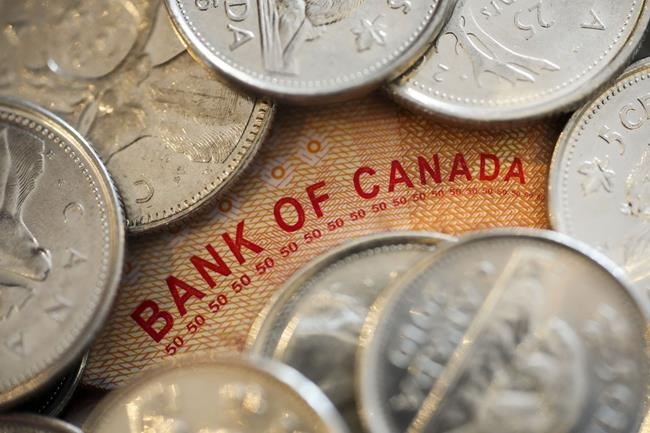OTTAWA — Momentum in the Canadian economy is spurring speculation that a rate hike is on the way, but economists don't expect the Bank of Canada to pull the trigger this week.
The central bank will be making its next interest rate decision on Wednesday, just one week after new data showed the Canadian economy is still growing — despite interest rates sitting at the highest levels since 2007.
Statistics Canada recently reported real gross domestic product grew at an annualized rate of 3.1 per cent during the first quarter. The figure beat out what forecasters had pencilled in for the first three months of the year.
Meanwhile, the federal agency's preliminary estimate for April suggests the economy expanded once again.
Even the housing market, which was the first to be hit by rising interest rates, appears to have levelled off as prices rise again.
Economists say the momentum is putting the Bank of Canada in a tough spot: the central bank has argued that a slowdown is necessary to bring inflation back to the two per cent target, but that slowdown hasn't yet come to fruition.
Now, all eyes will be on how the central bank addresses the recent data and underlying strength in the economy.
"The question for us is: how much does the Bank of Canada acknowledge this hot data that's been coming out, which goes against the notion that the economy is slowing," said James Orlando, TD's director of economics.
Orlando said the data suggests a resurgence in growth, rather than a slowdown, especially given consumer spending rebounded during the first quarter.
Canada's strong economic results are at odds with the expectation last year that interest rates would push the economy into a recession. Instead, economists are now speculating the Bank of Canada will raise interest rates in July.
"Hiking next week probably doesn't make much sense," Orlando said, given the central bank typically communicates its moves head of time.
Desjardins chief economist Jimmy Jean agrees that a rate hike is more likely to come in the summer, which would give the central bank some time to assess inflation pressures.
"It's going to be a very close call, (but) ultimately, I think they'll want to maybe accumulate a little bit more data," Jean said.
Earlier this year, the Bank of Canada announced a pause on its rate-hiking cycle that began in March 2022. After raising rates rapidly from near zero to 4.5 per cent, governor Tiff Macklem said the pause would provide the central bank some time to assess the effects of rate hikes on the economy, given a lag exists between the two.
But members of the governing council were already discussing raising interest rates at their last decision meeting in April. According to the summary of deliberations, "the resilience of economic growth" was one of the rationales for a rate hike.
Ultimately, the governing council opted to remain on pause, but Macklem said that the central bank is still leaning toward raising interest rates further, rather than cutting rates this year.
Chief among the central bank's concerns is the Canadian labour market, which has remained remarkably strong. In April, the unemployment rate held steady at five per cent for a fifth consecutive month. That's just above the all-time low of 4.9 per cent reached last summer.
Wages in April were also up 5.2 per cent compared to a year ago, outpacing price growth. The Bank of Canada has argued that the unemployment rate, along with the current pace of wage growth, are not sustainable and will making fighting inflation harder.
In April, Canada's inflation rate ticked up slightly to 4.4 per cent after steadily declining since last summer. Inflation is still expected to continue trending downward, but Jean said there's cause for concern.
He said stickiness in core measures of inflation — which strip out volatility — suggest Canada is not out of the woods just yet.
"When you really take the bigger picture of what's happening in core inflation, I don't think it's something that the Bank of Canada is sleeping comfortably just yet," Jean said.
However, Orlando said there is good news to consider: forecasts of an imminent recession have turned out to be pessimistic. And yet, inflation has still eased significantly.
Orlando said if inflation falls to three per cent this summer without job losses, that would be cause for celebration.
"Inflation has come down to much more comfortable levels. And if we can maintain this economy right now, and get inflation back down to three per cent, that's so much more of a positive outcome than anyone would have thought we would have been in," Orlando said.
This report by The Canadian Press was first published June 4, 2023.
Nojoud Al Mallees, The Canadian Press




